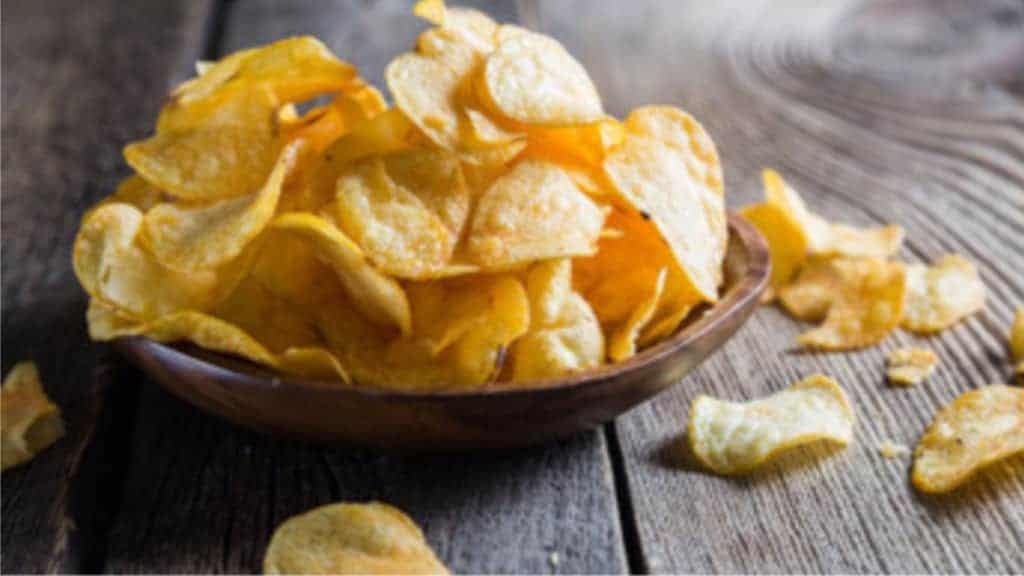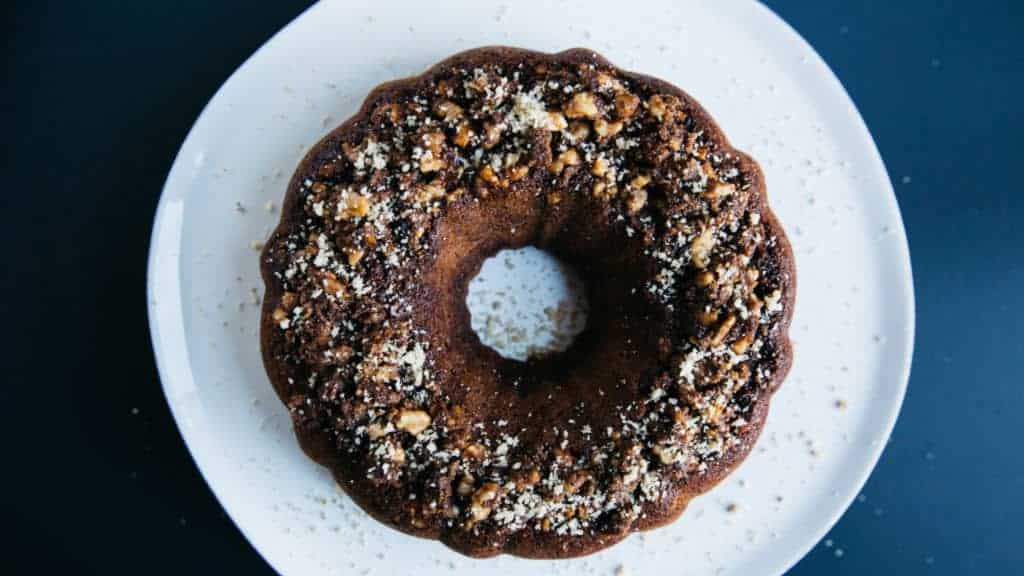Junk food is cheap, convenient, and tasty, but everyone knows it’s bad for your body. It can increase the risk of obesity, which in turn increases the risk of depression along with other diseases. But did you know that junk food is also bad for mental health, not just physical health?
Experts suggested that unhealthy fast foods are partially to blame for depressive symptoms for years. And now, there is scientific evidence of this fact.
Scientists Reveal How Junk Food Causes Depression And 10 Foods That Can Help
How Junk Food Causes Depression
A study entitled “Fast-food and commercial baked goods consumption and the risk of depression”, published in the Public Health Nutrition journal, confirmed the link between junk food and mental health disorder risk.
The study found that those who consume fast food regularly are 51% more likely to wind up developing symptoms of depression when compared to those who eat little to no junk food. Increased junk food consumption also increases risks. Thus, the more you eat, the more susceptible you become.
A study sample of 8,964 individuals participated in a study, all from the University of Navarra Diet and Lifestyle Tracking Program’s SUN Project. Each participant, none of which had a diagnosis of depression when the study began, was assessed over the course of around 6 months. After the study period was over, 493 individuals were prescribed antidepressants or were diagnosed with a depressive disorder.
From these results, researchers were able to determine that even consuming small amounts of junk food, even commercially baked goods lead to increased depression risk. Individuals consuming junk food were also found to work very long hours, smoke, be less active, have poor diets, and be single.
Though more research is needed, study authors are positive that those avoiding depressive symptoms should cut down on their junk food consumption overall.
Additional Negative Effects Of Junk Food
Junk food isn’t just responsible for depression. It can have adverse effects on a wide range of bodily systems, organs, and functions. Here are some of them:
1. Respiratory System
When you eat junk food, you’re opening yourself up to the risk of weight gain. Obesity and excess weight of any kind increases the risk of damage to your respiratory system, potentially leading to breathing difficulties and even asthma.
This is because the extra weight puts more pressure than usual on your lungs and heart, meaning you could lose your breath from simple tasks like walking or climbing stairs. This is even more apparent in children, as those who consume fast food thrice weekly have been found to have an increased risk of asthma development.
Of course, you won’t necessarily receive respiratory problems from rare junk food meals, especially if you work out and keep your weight down. But it is still a risk factor.
2. Skeletal System
When you eat junk food, the extra sugar and carbohydrates lead to more acid production in your mouth. Eventually, over time, this can lead to the diminishing of enamel on the teeth. Thus, you increase the risk of bacterial infection and cavities.
In addition, the potential weight gain from regular junk food consumption could lead to muscle mass and bone density problems if it develops into obesity. Overweight individuals have a higher risk of breaking bones, and a higher risk of falling and developing injuries in general.
3. Reproductive System
Studies indicate that the ingredients used in junk food can be damaging to your reproductive system and fertility. Phthalates, specifically, are chemicals that change hormone function in the body, and they are commonly found in processed foods.
Exposure to a lot of this chemical can result in reproductive problems, ranging from cycle irregularity to birth defects. If you’ve been having trouble with fertility, seeking to reduce junk food consumption may have a positive effect.
4. Cardiovascular and Digestive Systems
The huge amount of carbohydrates in junk food is typically accompanied by little to no fiber. This means that the body will be breaking down and absorbing a lot of carbs into your blood, causing a significant spike in blood sugar.
Lower in your body, the pancreas releases insulin in order to transport the glucose (sugar) from the carbs all over your body. In a healthy body, this goes off without a hitch. But in a body that is overly used to consuming high levels of carbs, this can be especially dangerous as your body’s standard insulin production procedures falter.
This will eventually lead to type 2 diabetes, as well as other issues caused by insulin resistance, like weight gain, PCOS, cardiovascular disease, and more.
5. Integumentary system impacted by junk food
This system, which basically consists of your skin, hair, and nails, can be affected by what you eat. Past experts believed that greasy foods and chocolate were the culprits for acne, but more recent research indicates that carbohydrates might be even more at fault.
This is due to the aforementioned blood sugar spikes, which may lead to acne production. In teenagers and children, consuming fast food thrice weekly is enough to increase the risk of developing eczema.
Ten Foods That Can Help Ease Depression
1. Berries
Berries are packed with antioxidants, and these are known for helping repair DNA, fixing cells and reducing the risk of cancer and other similar diseases. Numerous studies have indicated that antioxidants are able to lower depressive symptoms and risks, increasing positive thinking and mental health.
Raspberries and strawberries are great options, but blueberries are by far the best choice thanks to their high polyphenol and vitamin C content. Wild blueberry juice has also been found to boost the general mood within hours.
2. Fermented Foods
An unhealthy gut can lead to an unhealthy mental state, according to numerous forms of research conducted over the years. While experts are still working on uncovering the exact reasons for this, the results don’t lie.
Kimchi, miso, tempeh, kombucha, sauerkraut, yogurt, and tamari are all good fermented food options for battling depression.
3. Leafy Greens
Dark, leafy greens are packed with nutrients and are among the most commonly recommended foods for literally any purpose. They boost immunity, reduce cancer risk, and reduce brain inflammation, which can lead to depression.
Swiss chard, kale, watercress, cabbage, collards, and spinach are all great options – and if you need a break in between leafy greens, broccoli and peppers also work.
4. Avocado
This increasingly popular food is famous among health fanatics for a reason. It’s packed with good fats, vitamins, and 11g of dietary fiber in just one fruit.
Healthy fats are important brain-boosters, and the lack of sugar in this fruit also makes it even healthier than other fruits in many cases. The fat in avocados is oleic acid, which helps your brain run smoothly.
5. Walnuts
You likely already know that the mix of antioxidants, omega-3 fatty acids, and vitamin E in walnuts are good for the cardiovascular system, but it’s actually also good for lowering depression risk thanks to its healthy fat content.
In fact, a recent study conducted with the data from more than 26,00 different adults in America was able to definitively link increased positive thinking and reduced depression risk with regular walnut consumption. Eating just an ounce of walnuts daily can reduce depression scores by 26%! This is 8% lower than any other type of nut provides.
6. Dark Chocolate
Eating very highly sweetened chocolate can count as eating junk food, and that’s why dark chocolate is such a good option. Cocoa beans have an antioxidant known as flavonoids, and these are well-known for boosting mood and positive thinking.
Milk chocolate and other non-dark chocolates have fewer flavonoids and more dairy and sugar, making them less effective. But dark chocolate – especially of 80% and above – works wonders!
7. Salmon
Salmon has two nutrients that make it useful for battling depression. The first is omega-3, a fatty acid which is a form of good fat. As we’ve previously discussed, this is great for improving the overall health of the brain. Salmon is especially powerful here because it has EPA and DHA, which are even more beneficial.
The second nutrient is vitamin D. Those who have lower levels of vitamin D in their bodies are often found to have a higher risk of developing depression. While it’s not easy to have a vitamin D deficiency, you may still not be getting exactly enough.
8. Beans
Beans are great for the cardiovascular and digestive systems. They’re very high in fiber, which allows them to absorb carbohydrates and sugars that you eat, preventing them from entering the bloodstream. High-fiber foods also digest more slowly. So, you stay full for longer and don’t wind up eating excess junk food.
Gut health and mental health work hand-in-hand. Furthermore, fiber can also aid in the production of short-chain fatty acids. And that reduces the risk of inflammation in the brain, which can cause depression.
9. Tomatoes
Tomatoes are full of nutrients that can fight depression. Folic acid is its main benefit. Among those with depression, folate deficiency is surprisingly common, accounting for ? of every patient with the disorder.
This may be because folic acid is capable of balancing homocysteine production. Homocysteine is responsible for limiting dopamine, serotonin, norepinephrine, and other positive neurotransmitters.
Another good component in tomatoes is alpha-lipoic acid. It is capable of helping to balance mood, and it also assists the body in energy production from glucose.
10. Oysters
Oysters contain healthy levels of zinc. And, studies find a link between low zinc levels and depression. In fact, there are experts who genuinely recommend regular oyster consumption to their patients in order to boost their cognitive ability and mood.
Oysters are the best foods for this particular job, but if you’re not a fan, you can also opt for any other kinds of shellfish. Either way, you’ll get zinc, fatty acids, vitamin B12, and selenium. Each of these links back to mental health.
Final Thoughts on the Connection Between Junk Food and Depression
Junk food does no one any favors. It is irrevocably bad with no redeeming qualities, and the fact that it can cause and worsen depression is even more reason to avoid it.
So you don’t have to cut out junk food permanently and 100%. However, it’s a good idea to cut down on eating these empty calories to the point where they’re a rare treat. Instead of eating junk food, focus on eating foods that power the brain and have positive effects on mood!















 Community
Community

